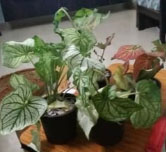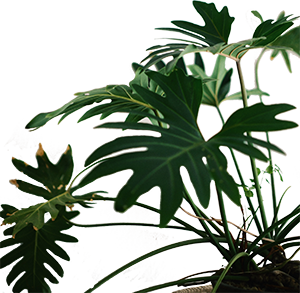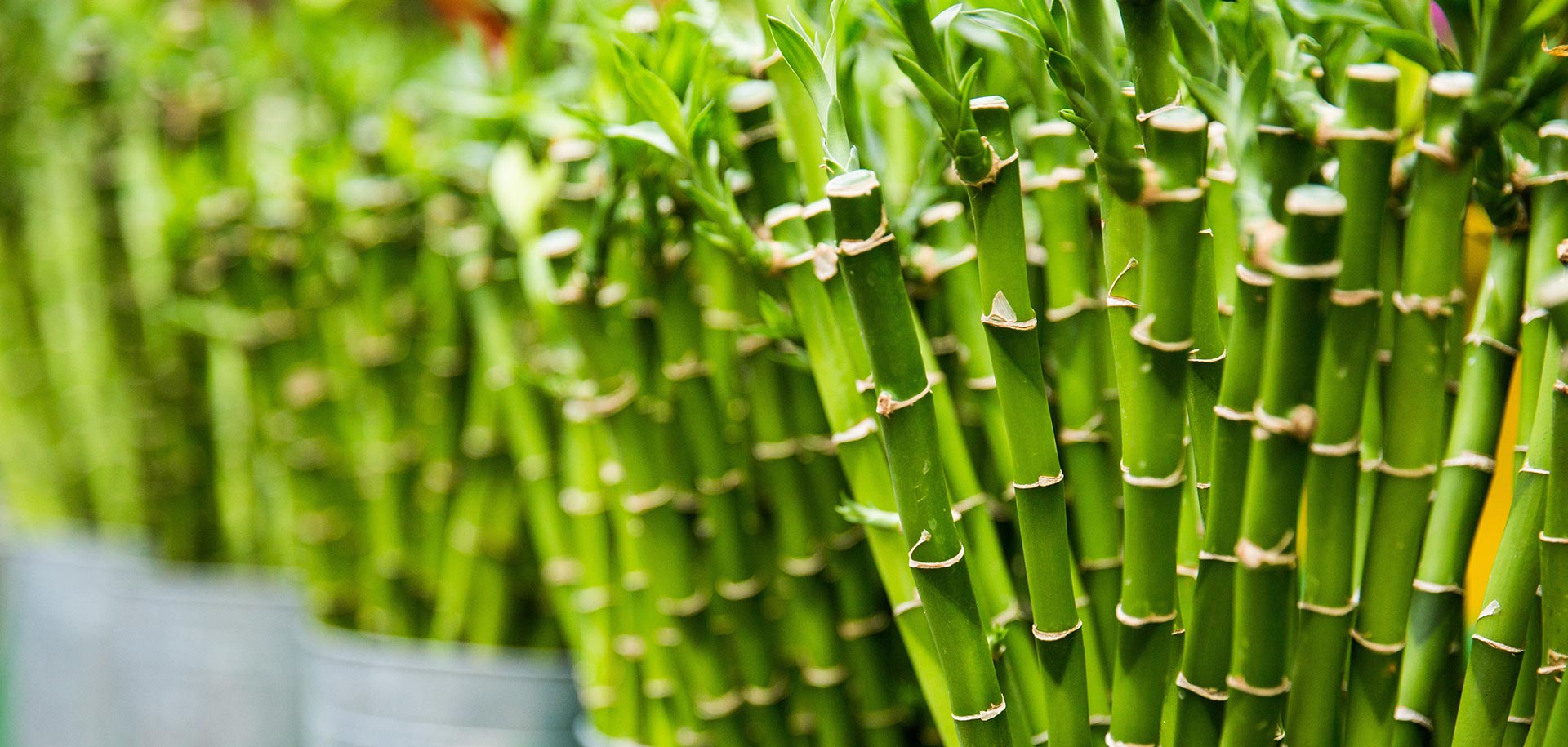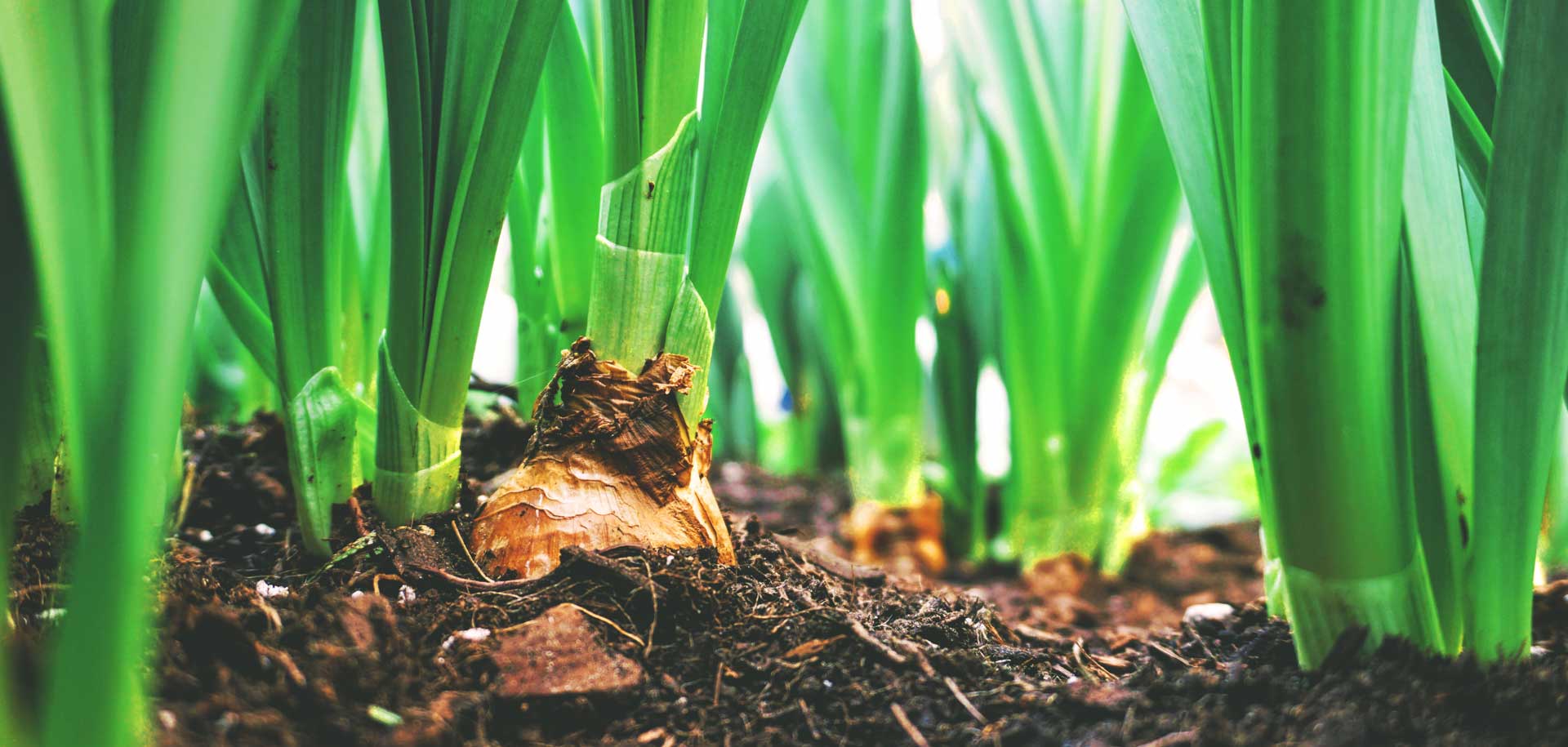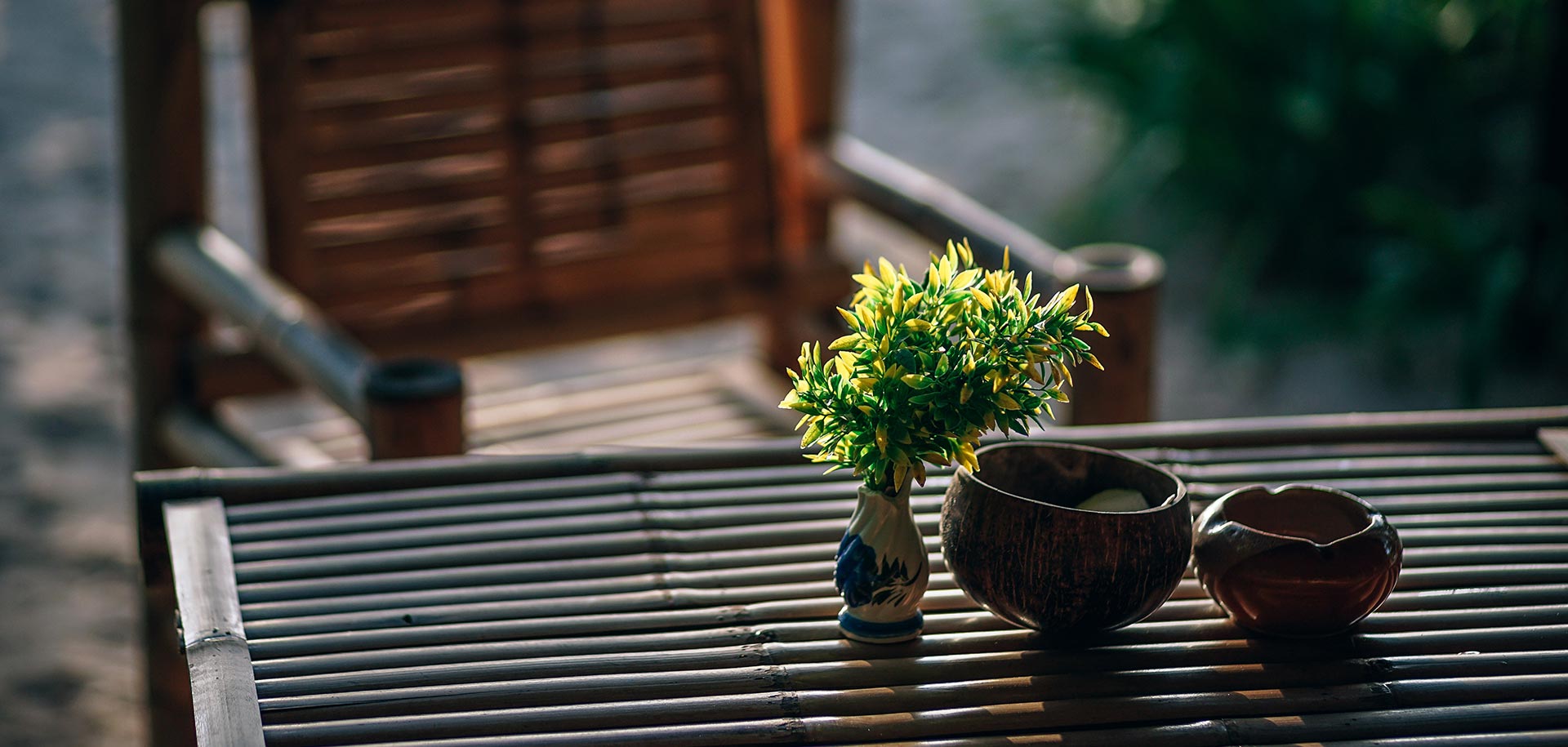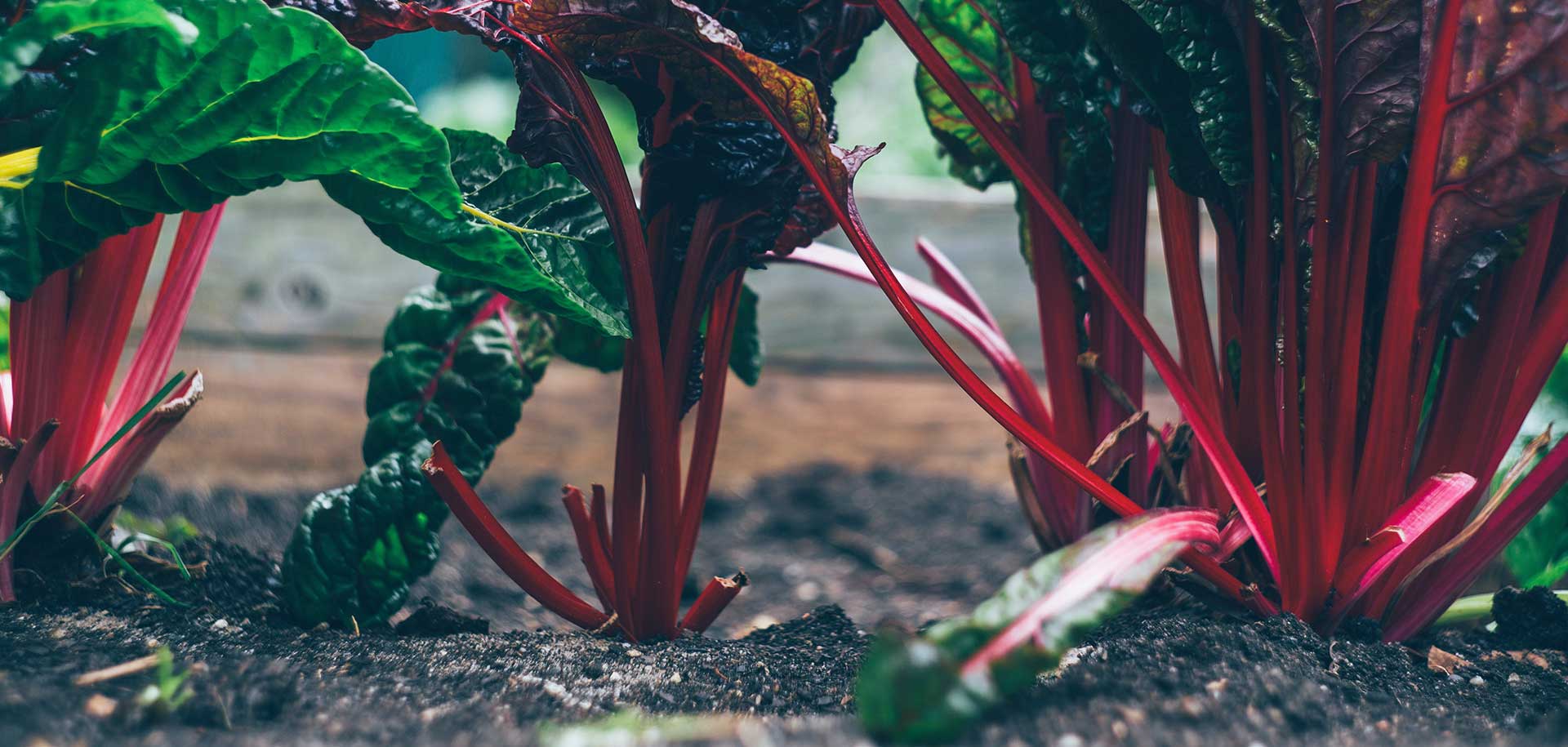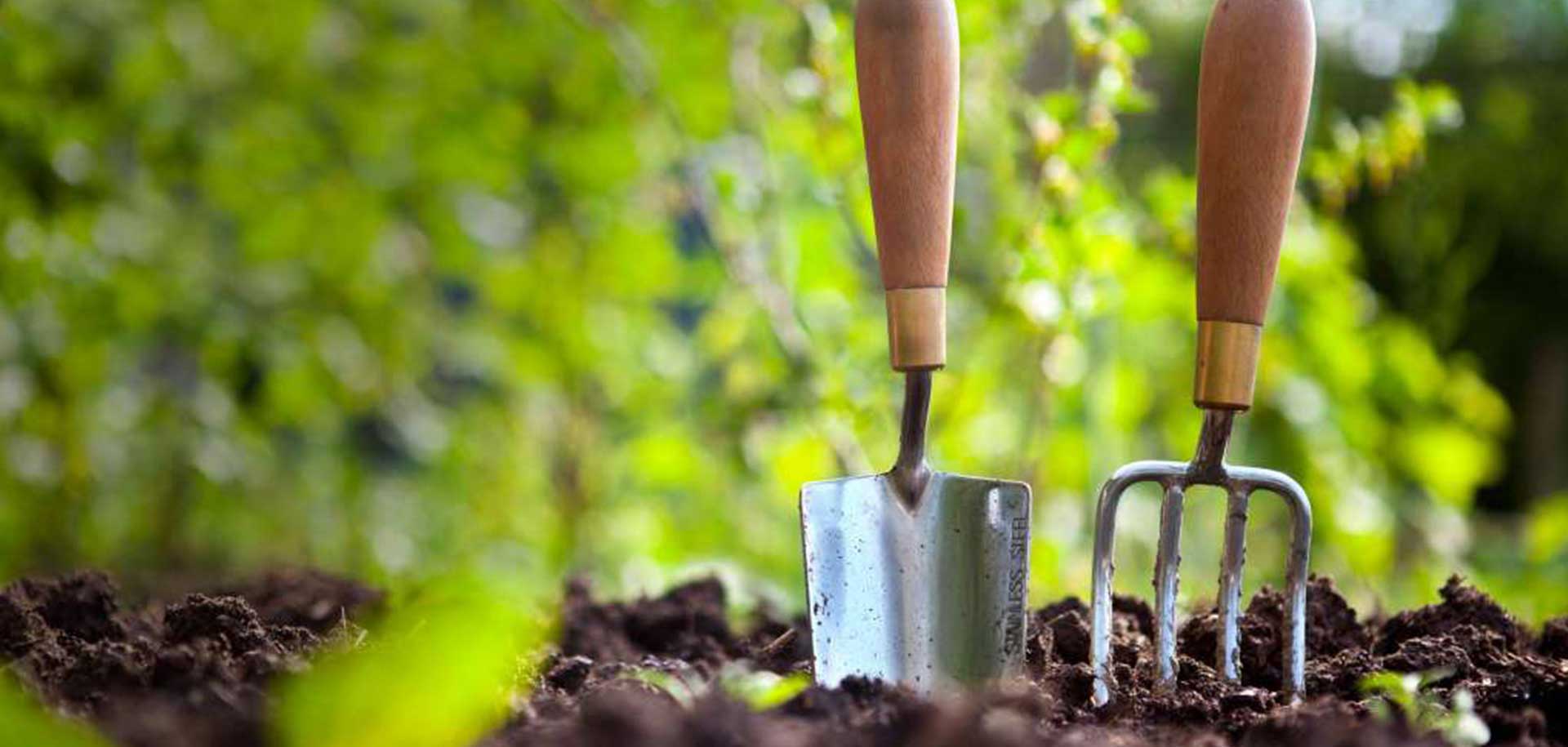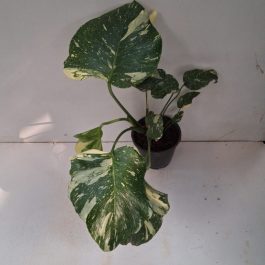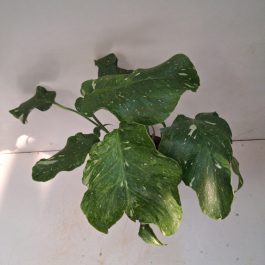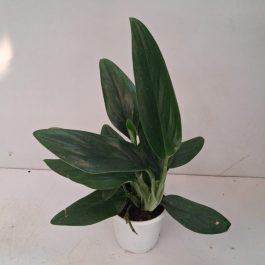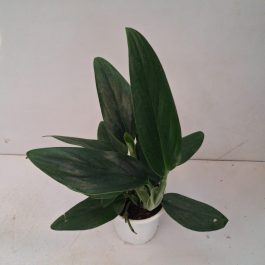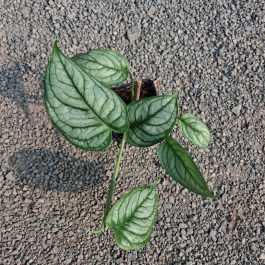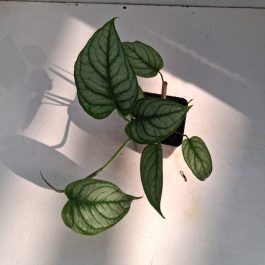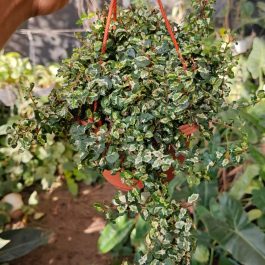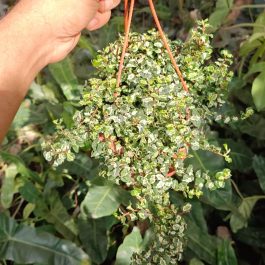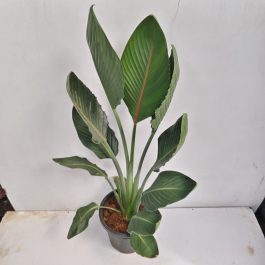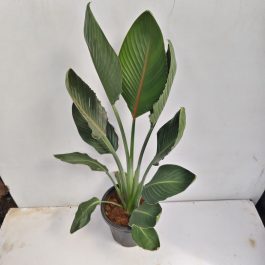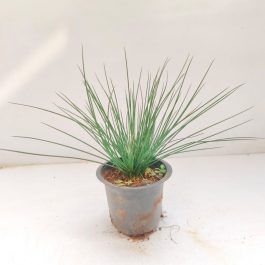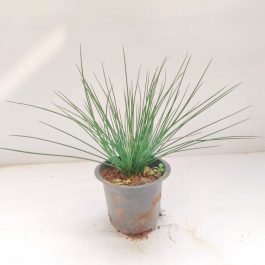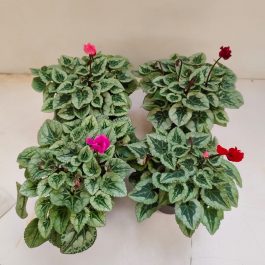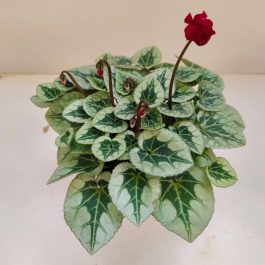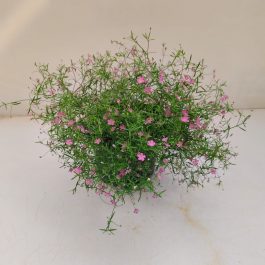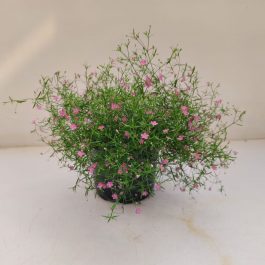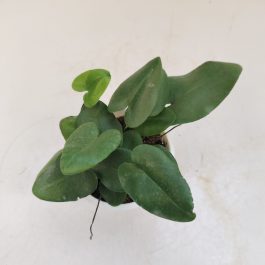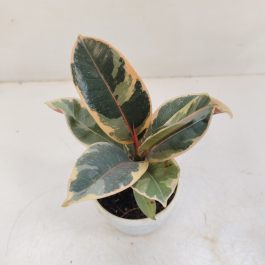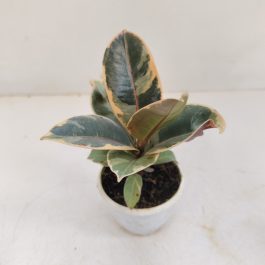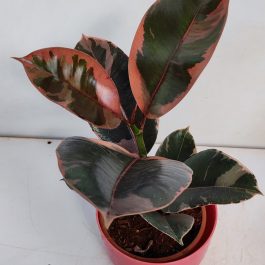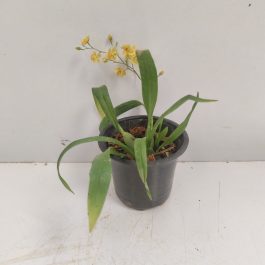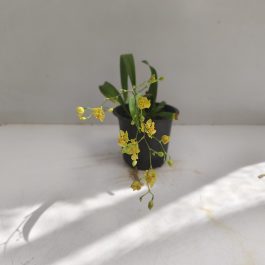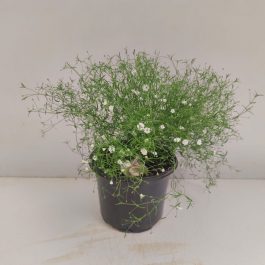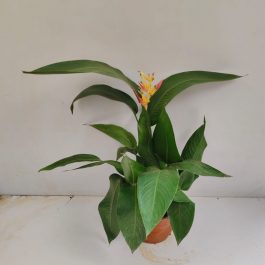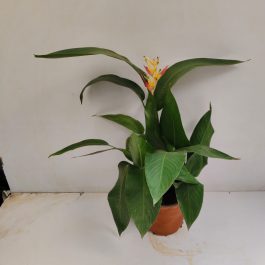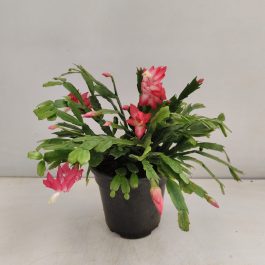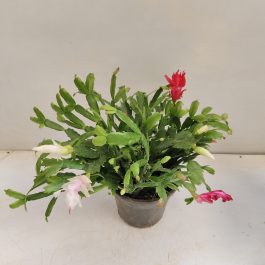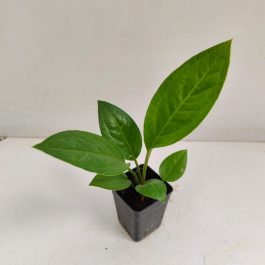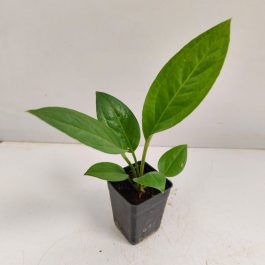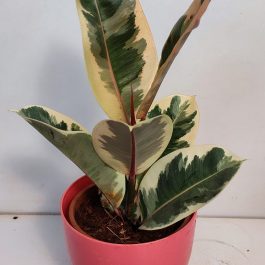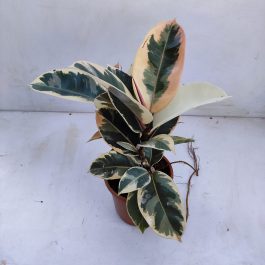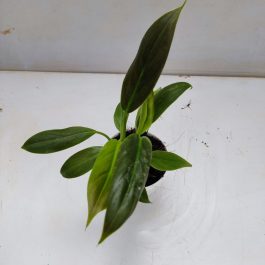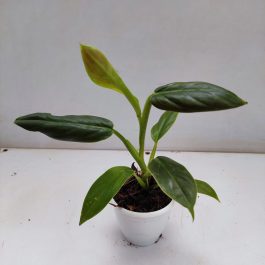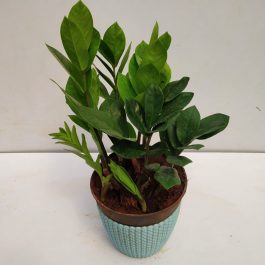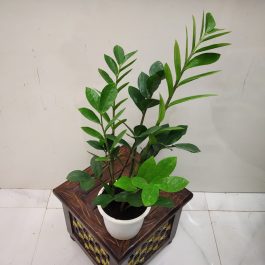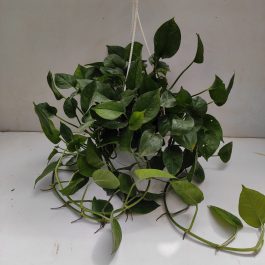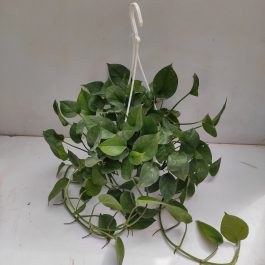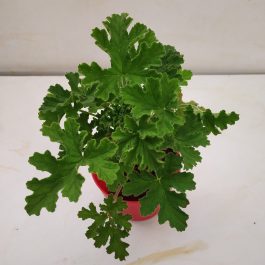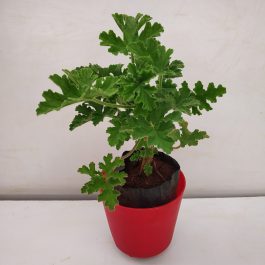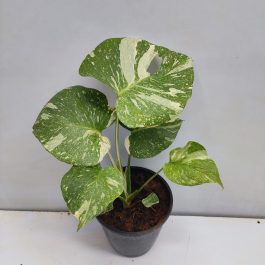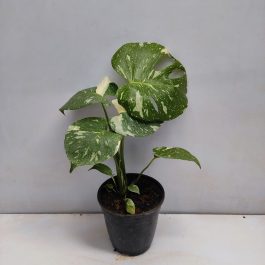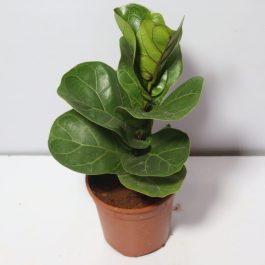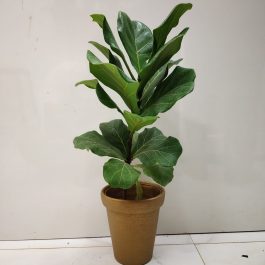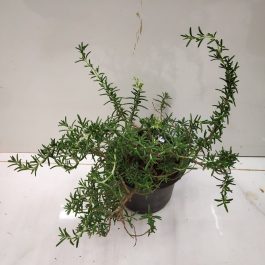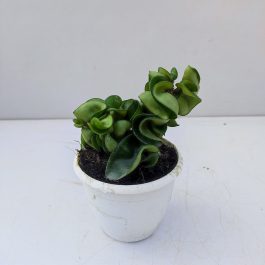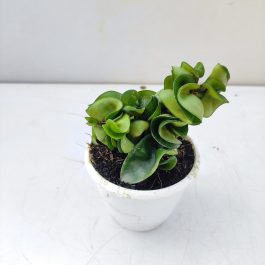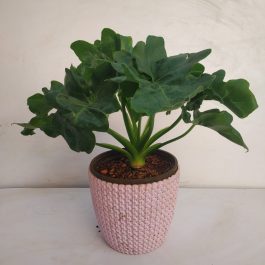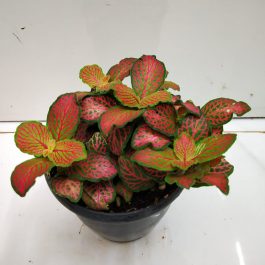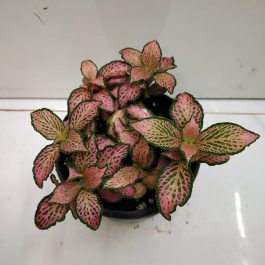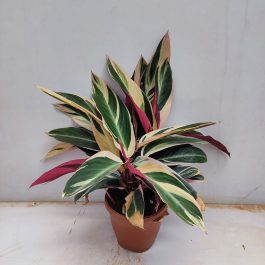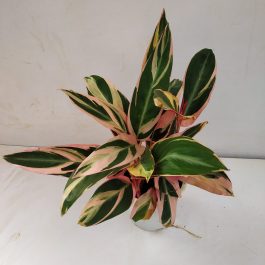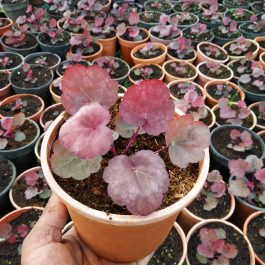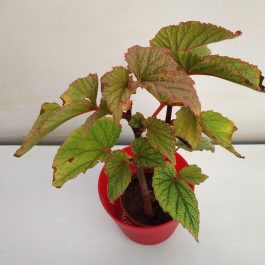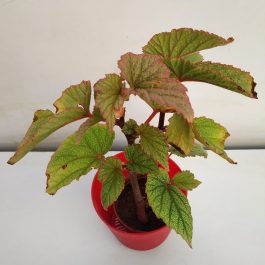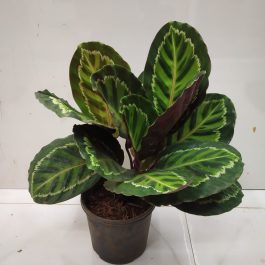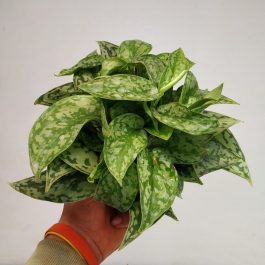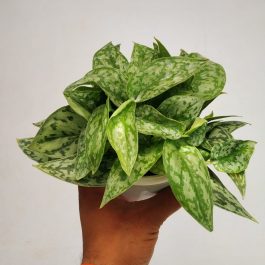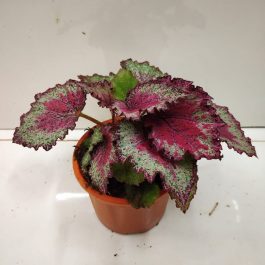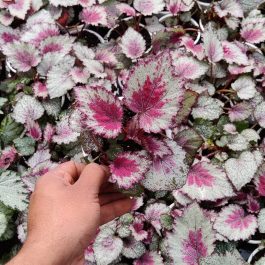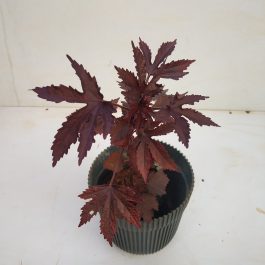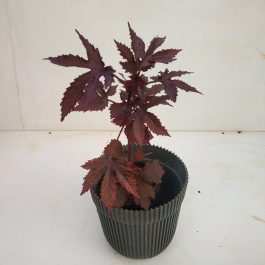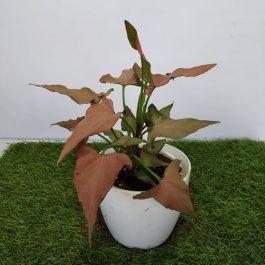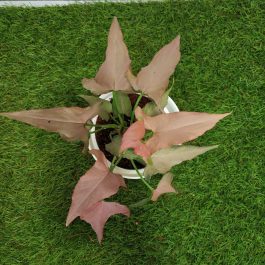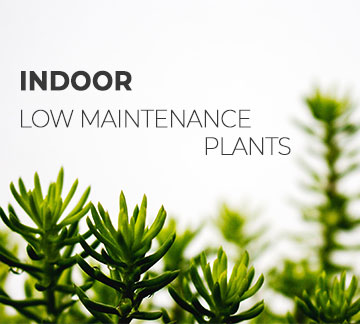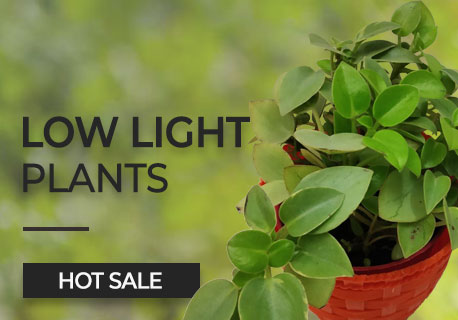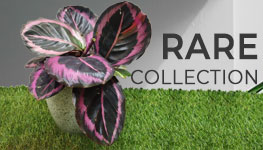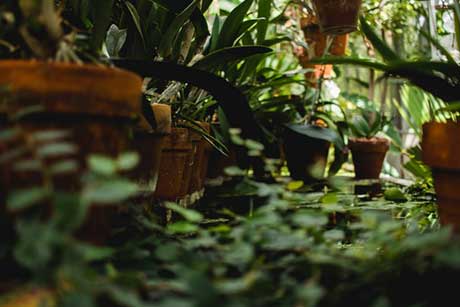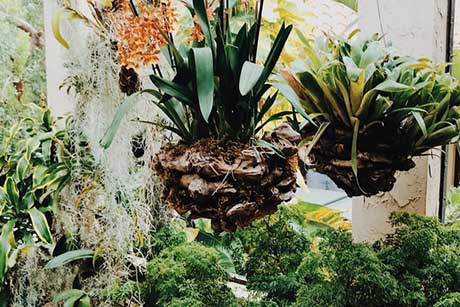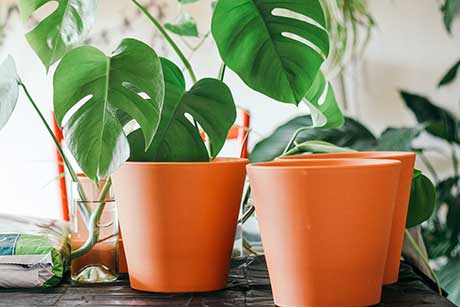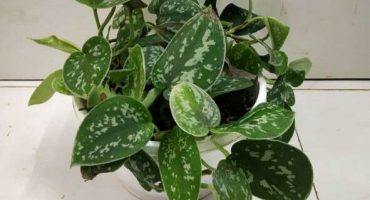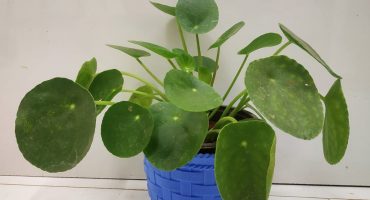LATEST PRODUCTS
- Sale! -89% NEW!
![IMG-20260122-WA0176]()
 Add to cartMORE INFO
Add to cartMORE INFOMonstera Zombie
Monstera deliciosa “Zombie”, a fascinating and rare variety admired for its eerie, textured foliage and unusual growth patterns. Unlike the typical Monstera, the “Zombie” features rugged, sculpted leaves with a striking, almost haunting appearance, making it an extraordinary centerpiece for any aroid collection. It’s distinctive leaf shapes and textures give the plant its mysterious “Zombie” character.
₹32,999.00₹3,599.00 - Sale! -91% NEW!
![IMG-20260122-WA0143]()
 Add to cartMORE INFO
Add to cartMORE INFOMonstera Standleyana
Monstera standleyana, often nicknamed the “Philodendron Cobra,” is a tropical vining plant native to Central America, specifically Costa Rica, Honduras, Nicaragua, and Panama. Despite its nickname, it is botanically a Monstera, though it differs from the famous Monstera deliciosa because its small, lance-shaped leaves rarely develop fenestrations (holes).The non-variegated form, known for its solid, glossy, deep green elliptical leaves can make a beautiful hanging baskets for bright backgrounds.
₹4,999.00₹449.00 - Sale! -94% NEW!
![IMG-20260122-WA0179]()
 Add to cartMORE INFO
Add to cartMORE INFOMonstera Siltepecana (Silver Monstera)
Monstera siltepecana, also known as the Silver Monstera, is a fast-growing tropical vining plant native to Mexico and Central America. It is highly prized by collectors for its dramatic transformation from silvery juvenile leaves to large, fenestrated adult foliage.
₹9,999.00₹599.00 - Sale! -58% NEW!
![IMG-20251027-WA0135]()
 Add to cartMORE INFO
Add to cartMORE INFOStrelitzia Reginae Red Large (Bird Of Paradise )
Strelitzia reginae with common names crane flower or bird of paradise. The leaves are bluish green in colour and may have a red midrib. The red orange and blue flower has two erect pointed petals and five stamens. One main flower bract, shaped like a boat, is green with red borders.
₹2,999.00₹1,249.00 - Sale! -50% NEW!
![IMG-20260103-WA0178]()
 Add to cartMORE INFO
Add to cartMORE INFODasylirion Longissimum (Mexican Grass Tree)
Dasylirion longissimum, commonly known as the Mexican Grass Tree or Toothless Sotol is a slow-growing, drought-tolerant succulent native to Mexico.The plant features an impressive rosette of long, slender, and sharply pointed leaves that radiate outward. Over time, it develops a thick, robust, woody base or trunk.It thrives in bright, direct sunlight and prefers sandy soil with excellent drainage.₹599.00₹299.00 - Sale! -63% NEW!
![IMG-20260103-WA0147]()
 Add to cartMORE INFO
Add to cartMORE INFOCyclamen Silverado Any one Color
The Cyclamen ‘Silverado’ is a miniature Cyclamen persicum series known for its distinctive, heavily silver-patterned foliage that beautifully contrasts with an abundance of delicate flowers in various colors.Foliage: It features heart-shaped, dark green leaves with striking two-toned silver marbling or patterns.Flowers: The plant produces abundant flowers, which come in colors like white, pink, scarlet, and wine red, on slender stems held above the foliage. The flowers may also have a light fragrance.Habit: It is a compact, mounding, and early-flowering variety, typically growing 6–10 inches tall and wide.Blooming Period: It provides color during the cooler months, blooming from fall through winter and into mid-spring, making it a popular houseplant for the holiday season.Usage: The ‘Silverado’ series is well-suited for use in pots, containers, window boxes, and as an indoor plant due to its small size and abundant blooms.₹1,599.00₹599.00 - Sale! -42% NEW!
![IMG-20260103-WA0201]()
 Add to cartMORE INFO
Add to cartMORE INFOGypsophila Muralis Pink (Baby’s Breath)
Gypsophila muralis ‘Pink’ (commonly known as Low Baby’s Breath) is a charming, mounded annual that creates an airy “cloud” effect in the garden. It features a profusion of tiny, star-shaped white flowers held on slender, delicate stems. Its fine, needle-like green leaves provide a soft, misty texture that beautifully contrasts with bolder garden plants. It thrives in full sun and well-drained soil, blooming continuously from early summer through fall.
₹599.00₹349.00 - Sale! -92% NEW!
![IMG-20251228-WA0148]()
 Add to cartMORE INFO
Add to cartMORE INFOMonstera Deliciosa “Thai Constellation” Mini
Monstera Deliciosa ‘Thai Constellation’ has speckled and flecked cream variegation, making it easier to care. The Thai constellation is more tolerable of variable lighting conditions, and less prone to browning.
₹6,599.00₹499.00 - Sale! -58% NEW!
![IMG_20251228_153516]()
 Add to cartMORE INFO
Add to cartMORE INFOHemionitis Arifolia (Heart Leaf Fern) Mini
Hemionitis Arifolia –Heart Leaf Fern is a delicate fern is beloved by houseplant collectors for its perfectly heart-shaped leaves. Deep green and shiny, the 2-4″ leaves grow on short fuzzy stems taking on the shape of a heart or a tongue.The dwarf growth habit of the Heart Fern makes it a perfect choice for small spaces. Besides Heart fern, Hemionitis Arifolia is also commonly referred to as Heart Leaf Fern, and at times even, Tongue Fern due to the distinctive appearance of its fronds.
₹1,299.00₹549.00 - Sale! -70% NEW!
![IMG_20251221_115626]()
 Add to cartMORE INFO
Add to cartMORE INFOYellow Oncidium (Dancing lady Orchids Scented)
Yellow Oncidium (Dancing lady Orchids Scented) have long leaves, ruffled blooms, and are easy to care for, with a variety of colors and sizes. They carry a sweet scent like sonchampa with their blooms. They prefer warm days ,cool nights and some humidity with good drain mix. Do not cut the flower spike until it has turned completely brown and dry, as some species will rebloom from the same stem.
₹1,999.00₹599.00 - Sale! -33% NEW!
![IMG-20251221-WA0318]()
 Add to cartMORE INFO
Add to cartMORE INFOGypsophila Muralis White (Baby’s Breath)
Gypsophila muralis ‘White’ (commonly known as Low Baby’s Breath) is a charming, mounded annual that creates an airy “cloud” effect in the garden. It features a profusion of tiny, star-shaped white flowers held on slender, delicate stems. Its fine, needle-like green leaves provide a soft, misty texture that beautifully contrasts with bolder garden plants. It thrives in full sun and well-drained soil, blooming continuously from early summer through fall.
₹599.00₹399.00 - Sale! -44% NEW!
![IMG-20251129-WA0168]()
 Add to cartMORE INFO
Add to cartMORE INFOHeliconia Strawberries and Cream
Heliconia psittacorum ‘Strawberries and Cream’ is a popular tropical perennial known for its vibrant, dual-toned floral displays and compact growth habit. It features upright, waxy bracts that are a distinct strawberry-red or cerise pink at the tips, fading into a creamy white or pale yellow at the base. The foliage is dense, glossy green leaves that resemble miniature banana leaves.
₹2,249.00₹1,249.00 - Sale! -79% NEW!
![IMG-20251210-WA0127]()
 Add to cartMORE INFO
Add to cartMORE INFOQueen Anthurium (Anthurium warocqueanum)
The Queen Anthurium (Anthurium warocqueanum) is a highly sought-after tropical houseplant known for its dramatically long, velvety, dark green leaves with prominent silvery-white veins, mimicking royalty, hence its name. Native to Colombian rainforests, it’s an epiphytic climber requiring high humidity (70-80%), bright indirect light, warm temperatures (18-30°C/65-86°F), and a chunky, well-draining soil mix (like bark, moss, perlite) to prevent root rot. While demanding specific conditions, it rewards growers with stunning, large foliage that can grow over a meter long indoors, making it a prized collector’s plant.
₹5,999.00₹1,249.00 - Sale! -40% NEW!
![IMG-20251218-WA0147]()
 Add to cartMORE INFO
Add to cartMORE INFOPodocarpus Nagi
Meet the Podocarpus Nagi (now scientifically known as Nageia nagi), the conifer that defies every stereotype of its kind. While most of its cousins are prickly and needle-leaved, this ancient “living fossil” chooses elegance, sporting broad, leathery, and glossy emerald leaves that look more like a tropical laurel than a pine. It belongs to a plant family that dates back over 260 million years predating the dinosaurs.
₹999.00₹599.00 - Sale! -40% NEW!
![IMG-20251129-WA0166]()
 Add to cartMORE INFO
Add to cartMORE INFOAnthurium Red Flag Mini
Anthurium Red Flag is an exotic and bold display in any indoor plant collection due to its long Hardy leaves which will be completed Red maroon when new and slowly the color gets green until the leaf is completely mature. Caring this beauty is extremely easy due to its compact Hardy nature.
₹499.00₹299.00
BEST SELLING PRODUCTS
- Sale! -20%
![IMG_20210501_161702]()
 Add to cartMORE INFO
Add to cartMORE INFOCitronella Plant (Odomos)
This plant is commonly found under a number of names, such as citronella plant, mosquito plant geranium, citrosa geranium, and Pelargonium citrosum. Though many of its names leave the impression that it contains citronella, which is a common ingredient in insect repellent, the plant is actually a variety of scented geranium that simply produces a citronella-like scent when the leaves are crushed.
₹499.00₹399.00 - Sale! -85%
![IMG_20240613_112416]()
 Add to cartMORE INFO
Add to cartMORE INFOMonstera Deliciosa “Thai Constellation”
Monstera Deliciosa ‘Thai Constellation’ has speckled and flecked cream variegation, making it easier to care. The Thai constellation is more tolerable of variable lighting conditions, and less prone to browning.
₹6,599.00₹999.00 - Sale! -20%
![471be651-3dd3-4a87-b9b6-5cfe21d5dcbc]()
 Add to cartMORE INFO
Add to cartMORE INFOLyrata Ficus (Fiddle Leaf Plant)
Lyrata Ficus also known as ‘Fiddle Leaf Plant’ is a luxurious exotix houseplant whose leaves have prominent veins through the center and from the center to the edge of the leaves. These leaves have a glossy appearance and grow up to 12 inches long and 5 inches or more wide. The trunk (although it’s strong) is quite an odd one that grows very thin but long, which makes the plant a bushy type tree and full at the top without lower leaves.
₹499.00₹399.00 - Sale! -25%
![Salvia Rosmarinus Rosemary]() Add to cartMORE INFO
Add to cartMORE INFOSalvia Rosmarinus (Rosemary)
Salvia Rosmarinus, commonly known as Rosemary, is a woody, perennial herb with fragrant, evergreen, needle-like leaves and white, pink, purple, or blue flowers. Rosemary has a long history of uses for a variety of medicinal and curative applications, some of which are of unsubstantiated value.
₹399.00₹299.00 ![8a9dda07-cf2a-44aa-8a98-53621ee9ced9]() Read more
Read moreHeuchera ‘Fire Alarm’, Coral Bell
Arguably the reddest form of Heuchera, Fire Alarm sports bold red foliage that changes tones with the seasons. Great in combination with a variety of foliage colors, but looks especially wonderful with blue or silver which has a cooling effect, ‘Fire Alarm’ is bright red in spring and fall and darkens to a brown-red during the summer. This hybrid of H. villosa has thick, leathery red, red leaves that make delightful medium size mound. ‘Fire Alarm’ complements almost every section of the color palette.
₹499.00₹199.00![IMG_20210501_154944]()
 Read more
Read moreBegonia ‘Sinbad’ Mini
Begonia ‘Sinbad’ is a thick-stemmed hybrid of a thick-stemmed begonia and a shrub type begonia, so it has the habits of a bushy thick-stem. The small-medium sized leaves are silver and have a pebbled surface. The flowers are pink and it blooms in winter, spring and summer.
₹599.00₹199.00![Begonia ‘Jurassic Red Splash]()
 Read more
Read moreBegonia ‘Jurassic Red Splash’
Jurassic Red Splash Rex Begonia have red centers and outer edges with a silvery-green middle margin. The inner part is splotched with red. These plants are all about the foliage large leaves have bold color patterns with unusual veining and puckering to make them truly unique.
₹799.00₹399.00
How To ? - Our Blog on how to take care of your plants...
VIEW ALL -- 23 April 2023 by NurseryBuy, in Plant care
How NOT to Water Your Houseplants: 10 Plant-Saving Tips!
How to Avoid Killing Your Indoor Plants and Water Properly: 1. Don’t Mist!...READ MORE +  05 June 2020 by NurseryBuy, in Plant care
05 June 2020 by NurseryBuy, in Plant careHow To Grow & Care Scindapsus Plants?
With silvery dots and splashes against its dark green foliage, the Scindapsus pi...READ MORE + 05 June 2020 by NurseryBuy, in Plant care
05 June 2020 by NurseryBuy, in Plant careHow to Grow and Care for Pilea Plants Indoors
Sure, money doesn’t grow on trees, but the Coin Plant / Chinese Money Plant is w...READ MORE +
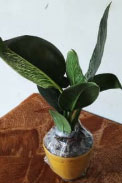

Dr. Sridevi

S.D.

Girija
